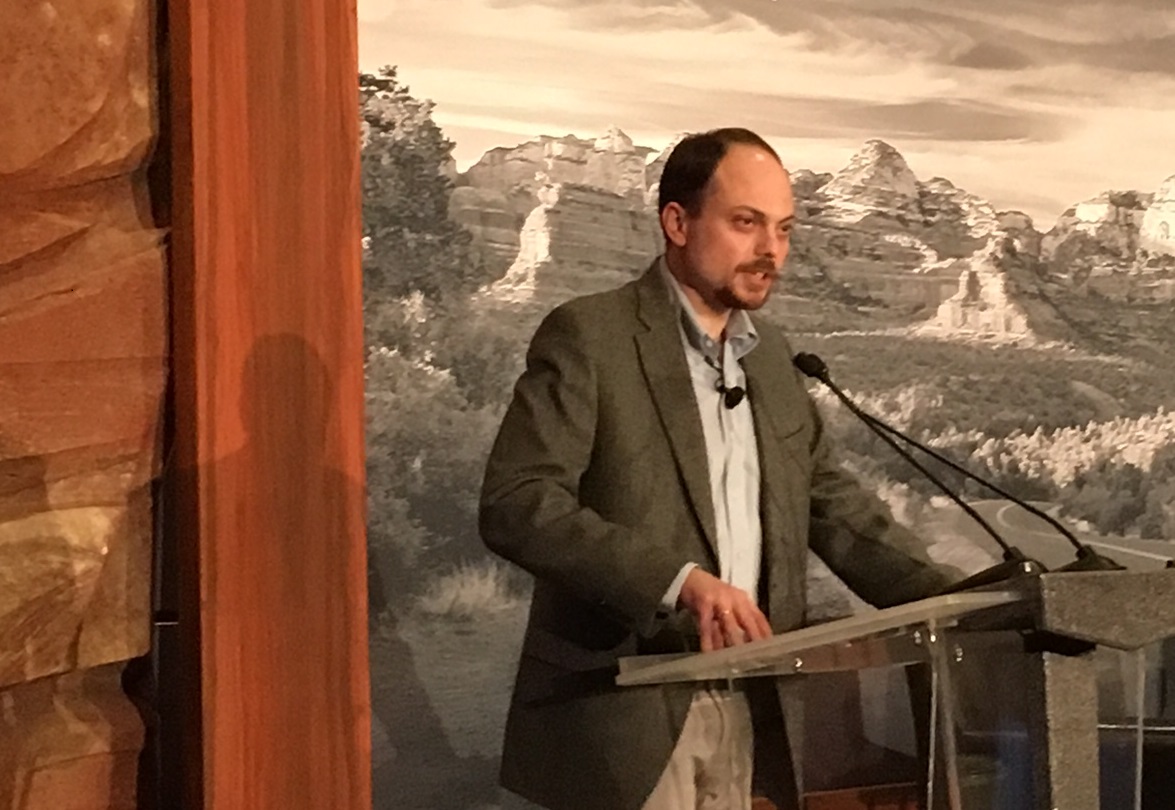I recently heard Russian democratic activist Vladimir Kara-Murza speak movingly to an American audience about leadership, human freedom and the West’s duty towards those struggling to taste democracy.
It wasn’t my first time with him. In September 2015, an enfeebled Kara-Murza appeared at IRI’s annual dinner to accept a Freedom Award on behalf of the late Russian opposition leader, Boris Nemtsov. Few who were in the audience that night will ever forget Vladimir, his courage, or the cause for which he nearly gave his own life.
When Kara-Murza joined us in Washington, he had only recently emerged from a coma brought on by a mysterious poison. The toxin had struck him down just a few months after his friend and co-democracy champion, Nemtsov, was brutally assassinated in plain view of the Kremlin. Doctors had initially given Kara-Murza only a five percent chance of survival.
Fortunately for all of us, the poison was strong, but his will to live was stronger.
Kara-Murza was eventually transported to the United States for rehabilitation and longer term treatment. Despite the poison’s lingering effects, when he learned that Nemtsov was to be honored, he insisted on attending the dinner himself so he could pay tribute both to his friend and the struggle for democracy in Russia. That evening, the health burden Kara-Murza was carrying was painfully clear. He was still partially paralyzed from the poison and needed a cane to walk. I remember worrying whether he would be able to climb the two steps up to the stage; he made it by leaning heavily on the railing.
When I saw Kara-Murza more recently, he looked and sounded stronger. He still walked with a cane, and he was, as my mother would put it, “as thin as a wisp.” But the poison had lost. It had done its damage and caused so much pain – but it had not won.
In his remarks to us, Kara-Murza said that he is often asked what the obligation the community of democracies owes to those elsewhere who are struggling against authoritarian governments.
He said the answer is simple: “Just be true to yourselves.”
His words reminded me of some of the West’s great leaders and how they were willing to stand up for democracy and human liberty. I thought of Reagan and his challenge to the Soviet Union: “Mr. Gorbachev, open this gate. Mr. Gorbachev, tear down this wall!” I thought of Churchill’s warning of an Iron Curtain and Bush 41’s call for “Europe whole and free.” Those leaders understood how precious democracy and human liberty were. They understood the price that so many were willing to pay to try to secure what Reagan called “…not the sole prerogative of a lucky few, but the inalienable and universal right of all human beings.”
Somehow I doubt that today’s textbooks do justice to the struggle for democracy. I wonder if our young people look at those leaders and their bold declarations as merely ancient history.
I’d like to introduce them to Vladimir Kara-Murza.
Top